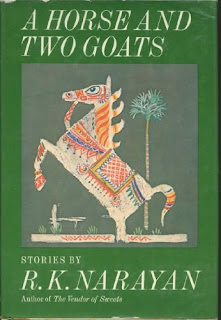RUDYARD
KIPLING
BIOGRAPHY
Rudyard Kipling was born in Bombay, India, in 1865.
His family were very important people, and they were related to politicians and
artists of the time, people that belonged to the Establishment.
When he was five, he was taken with his sister to the UK,
where they were left with some cruel relatives. There he went to a poor
boarding school, where he had to endure its military discipline.
When he was sixteen, he went back to India, where he
worked as a journalist because he couldn’t be a soldier as he was short-sighted. But, thanks to his job, he could make himself deeply acquainted with the true Indian life.
While working as a journalist, he wrote his first
poems and short stories, and those were widely read. So, when he went to England at the age of 24, he was already a well-known author. His stories were very popular
because people liked exotic countries and because his style was lively and
brilliant, something he undoubtedly learnt from his job as a journalist.
When he was 27, he married Carolina Balestier, sister
of an American publisher, and the couple settled in Vermont. They travelled a lot,
but, four years later, they returned to England because Rudyard couldn’t cope
with the American lifestyle.
When he was 42, he got the Nobel Prize for literature,
and he was the first English writer to get it.
During the WWI, he was pro-war and lost his son in the trenches. Then he worked in an official
institution in nationalistic propaganda to support the army in the conflict; he wrote things like
“Germans aren’t human beings, they are beasts”. From then on, he began to lose popularity because his topics started to be too fantastic and difficult.
He died in 1936, when he was 71 years old.
He wrote about his childhood and teenager experiences
in Stalky & Co. His novel Captain Courageous is very famous
for the film adaptation starring Spencer Tracy; it’s also famous Kim,
the narrative about an Irish orphan having to earn his living in India. But
Kipling is better when he writes short stories, like the Jungle Books. It’s also
well-known the film adaptation of The Man that would be King, with Sean
Connery and Michael Caine. A very interesting collection of stories for
children is Just so Stories where he explains fabulously the mysteries
and wonders of the nature, as for example, why the elephant has a trunk, or why the cheetah
has stains in its skin.
You also have to know the poem If, because a president
whose name it’s better not to remember, said he liked it.
MARY POSTGATE
This is the story of Mary Postgate, a very
simple-minded servant who is contracted to work for Miss Fowler, a rich old spinster. Some time after starting her job, Miss Fowler has to adopt a nephew because his parents had died, but
Mary Postgate is who takes care of him, protects him, defends him and indulges
him. However, this nephew, Wyndham (Wynn), treats her very badly, although she
doesn’t seem to notice, or she doesn't hate him for it. Then the WWI breaks out, and Wynn enlists as a pilot. He
dies in a training flight, but Mary never shows her sorrow, she only wants to do practical things. Miss Fowler asks Mary to burn almost all his possessions. And then, when she is making things
ready for the fire, there is a shocking incident: a barn has collapsed and has killed a girl. People think about a bomb dropped from a German plane, but the doctor says the barn was already decaying and that it collapsed by itself. Short after this, when Mary lights the
fire, he sees an aviator badly injured in a tree nearby. Is he German, French or English? Has he dropped a bomb? Is
he going to die? Is Mary going to help him or call the police?
QUESTIONS
Talk about the characters
Mary Postgate
Miss Fowler
Wyndham (Wynn) Fowler
What do you know about the WWI?
What are Taubers, Farmans and Zeppelins?
Why does Miss Fowler ask Mary, “What do you ever think of,
Mary?”, and on what occasion?
What is Contrexéville?
Explain Wynn’s accident and the women’s reaction to
it.
Miss Fowler said, “Old people and young people slip
from under a stroke like this [her nephew’s death]. The middle-aged feel it
most”. What is your opinion?
Why did Mrs Grant say, “he’ll be practically a stranger to
them”?
What do you do with the things of a dead person, a
relative?
What nationality was the agonizing pilot in the tree?
How do you know?
What would Wynn have done with the injured pilot?
Did this aviator kill Edna with a bomb? How do you
know?
How did this pilot die?
Was it justice or revenge?
Was any love between Mary and Wynn? Why do you think
so?
What is the meaning of these questions: “Mary, aren’t
you anything except a companion? Would you ever have been anything except a
companion?”?
Why is Mary “quite handsome” at the end?
VOCABULARY

